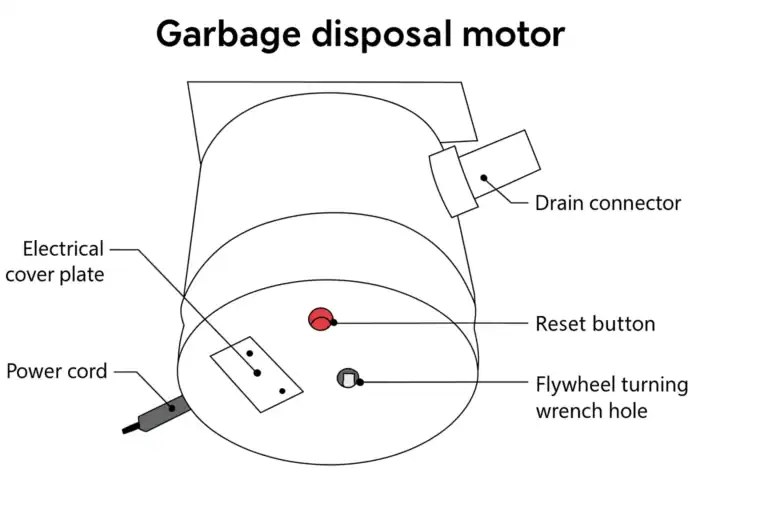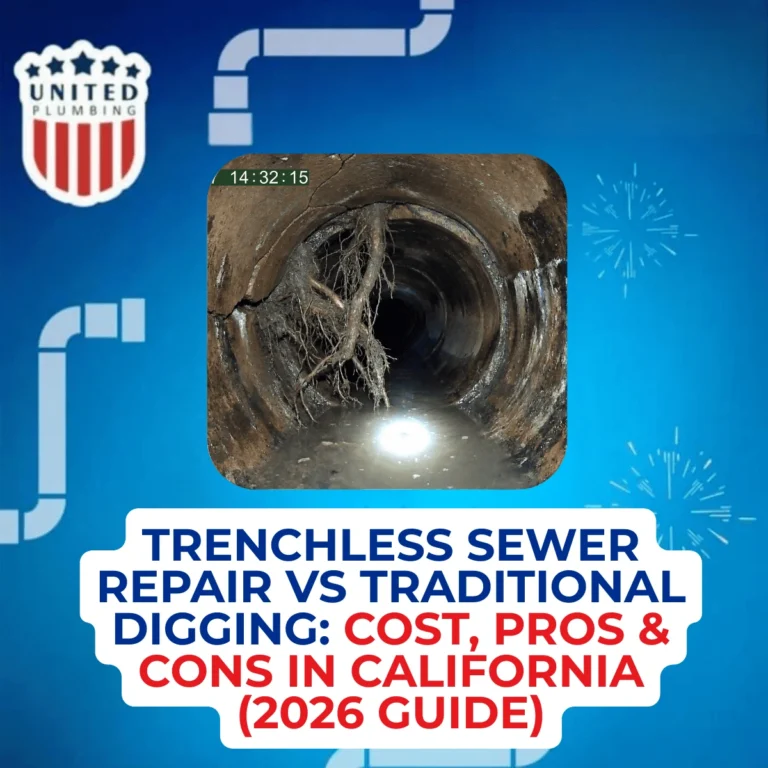FIVE-STAR TEAM WARRANTY &
SAME-DAY SERVICE
5 Ways to Unclog Your Garbage Disposal (DIY Guide)
Nothing stop a busy kitchen like a garbage disposal that suddenly stops grinding and leaves disgusting gutter water sitting in the sink. A clogged garbage disposal is more common than you think imagine all the time where you spilled your grease down there causing grease buildup, fibrous vegetables, bones, or even silverware that slipped in unnoticed. The good news? Most clogs can be fixed safely at home without calling a plumber. In this guide, you’ll learn five proven ways to unclog your garbage disposal, when DIY works, and when it’s time to call a professional.
Safety Tip: Always turn off the power switch (and ideally unplug the unit) before attempting any repair. Never stick your hand directly into the disposal.
1. Use the Reset Button First

Every garbage disposal has a small reset button, usually located on the bottom or side of the unit. If the motor has overheated or jammed, pressing this button often solves the issue instantly.
- Turn off the disposal.
- Locate and press the red or black reset button.
- Wait a few minutes, then turn the power back on and test.
This quick step can save you from unnecessary troubleshooting.
2. Manually Turn the Disposal Blades
Sometimes food scraps or foreign objects jam the blades. You can free them without taking the unit apart:
- Insert a ¼-inch Allen wrench into the hex socket on the bottom of the disposal.
- Rotate it back and forth until the blades move freely.
- Remove the wrench, restore power, and test again.
This step is especially useful for hard clogs caused by bones or seeds.
3. Use Baking Soda and Vinegar
If your garbage disposal is clogged but still humming, try a natural cleaning method:
- Pour ½ cup of baking soda down the drain.
- Follow with 1 cup of white vinegar.
- Let the fizzing action sit for 5–10 minutes.
- Flush with a kettle of hot water.
This eco-friendly solution helps break down grease and clear minor blockages. This technique is also how you could unclog your kitchen sink
4. Check for Foreign Objects
Clogs aren’t always food-related. Silverware, bottle caps, or small plastic items often fall into the disposal.
- Shine a flashlight down the drain.
- Use pliers or tongs to remove any visible obstruction.
- Never reach in with your hands, even if the unit is off.
Once cleared, run cold water and test the disposal.
5. Try a Plunger for Stubborn Clogs
If your sink is full of standing water, a sink plunger can help:
- Place the plunger firmly over the drain opening.
- Pump several times to build suction.
- Remove the plunger and check if water drains freely.
If water still doesn’t move, the clog may be in the drain line rather than the disposal itself.
When to Call a Professional Plumber
DIY fixes are great for simple clogs, but some problems require expert attention:
- Disposal won’t turn on even after pressing the reset button.
- Frequent clogs keep happening.
- You smell burning or hear unusual grinding noises.
- The unit is leaking from the bottom.
Need help fast? Contact our licensed plumbers for garbage disposal repair or replacement.
Preventing Future Clogs
- Run cold water every time you use the disposal.
- Avoid putting grease, coffee grounds, eggshells, or fibrous veggies (like celery or potato peels) down the drain.
- Clean the disposal monthly with baking soda, vinegar, and ice cubes.
Final Thoughts
Unclog garbage disposal doesn’t have to be a nightmare. By using the reset button, rotating the blades, cleaning with baking soda and vinegar, or carefully removing foreign objects, you can often restore your disposal in minutes.
But if DIY methods don’t solve the problem or if your disposal shows signs of damage it’s always best to call a licensed plumber. They’ll save you time, protect your pipes, and make sure your kitchen is back to running smoothly.
Post views: 553
Frequently Asked Questions (FAQ)
Q: What should I never put in a garbage disposal?
A: Avoid grease, oils, coffee grounds, pasta, rice, bones, and fibrous vegetables—they can cause clogs or damage.
Q: Can I use chemical drain cleaners in my garbage disposal?
A: No. Harsh chemicals can damage disposal blades and pipes. Stick to baking soda, vinegar, or professional solutions.
Q: How long should a garbage disposal last?
A: With proper maintenance, most disposals last 8–12 years. Frequent clogs or leaks may be a sign it’s time to replace yours.
Latest posts

How Much Does Sewer Line Replacement Cost in California? 2026 Breakdown
In 2026, the average sewer line replacement cost in California ranges from 6,500 to 22,000 dollars. The final price...

Trenchless Sewer Repair vs Traditional Digging: Cost, Pros & Cons in California (2026 Guide)
In California, trenchless sewer repair typically costs between $6,000 and $18,000, while traditional sewer line...


If you still have questions or need advice, please leave a request and we will contact you as soon as possible
Need a plumber and got no clue where to start?
(408) 539-6936Facing a plumbing issue? Get a FREE in-person estimate and quick solutions from our skilled technicians, ensuring your home runs smoothly again!
